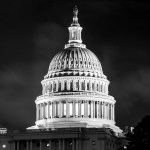The U.K. took another step towards using white spaces spectrum for unlicensed mobile broadband services on Monday, when regulator Ofcom published rules designed to avoid interference with other spectrum users.
The frequencies in question sit within the 470 MHz-790 MHz band, which is currently used for a variety of services including wireless microphones and digital terrestrial TV (DTT), among others.
Following extensive trials that included the likes of Google and Microsoft, Ofcom in February approved the use of white spaces for mobile broadband.
"Based on the trials and stakeholder feedback, there is considerable interest from industry in developing this technology," said Ofcom on Monday.
The newly-published rules establish the requirements that devices will have to meet in order to be used for white spaces services without a licence. The aim is to avoid harmful interf erence with other spectrum users by limiting the power levels at which these devices can operate.
"Ofcom also plans to explore whether the white space in other spectrum bands could be used for similar innovation in future," the watchdog said.

















